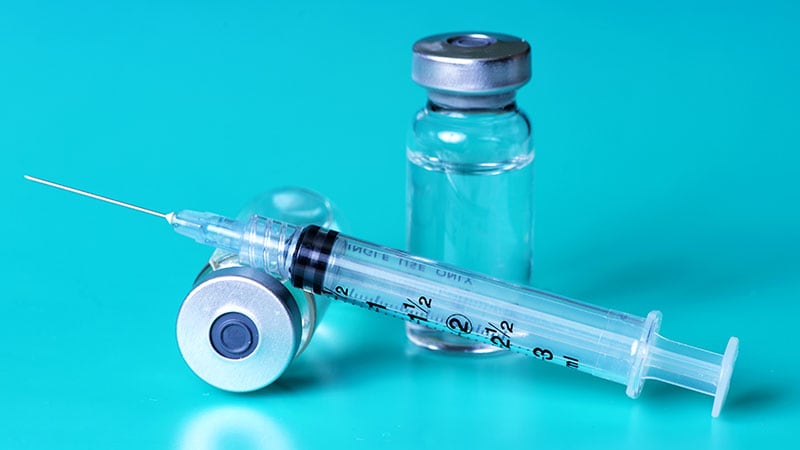Seven different COVID-19 vaccines increase immunity when used as a booster for people who have had two doses of AstraZeneca/Oxford vaccine, and 6 vaccines provide immunity as boosters after 2 doses of Pfizer/BioNTech, a study has shown. However there were large variations in antibody and cellular immune responses between vaccines.
The COV-BOOST study found that an mRNA booster – such as Moderna or Pfizer – gave the best overall immune response against SARS-CoV-2, irrespective of whether first doses were an mRNA vaccine or AstraZeneca's chimpanzee adenovirus vectored vaccine.
Results from the randomised phase 2 trial, published in The Lancet, looked at the safety, immune responses, and side effects of 7 vaccines when used as a third jab.
The trial was designed to inform policy choices for booster vaccination programmes.
Measuring Immune Response and Safety
COV-BOOST looked at the safety, immune responses, and side-effects of 7 vaccines when used as a third, booster jab.
The vaccines included in the trial were:
- AstraZeneca/Oxford
- Pfizer/BioNTech
- Moderna
- Novavax
- Janssen
- Valneva
- Curevac
Of these, only AstraZeneca, Pfizer, Moderna, and Janssen are currently approved for use in the UK.
Study Details
The study, led by the University of Southampton, involved 2878 healthy people aged 30 and older who were recruited at 18 UK sites between June 1 and June 30, 2021.
Participants received one of the boosters 10 to 12 weeks after their initial two-dose vaccination with either the AstraZeneca or Pfizer vaccines, while a control group was given a meningitis vaccine (MenACWY).
All vaccines in the study were found to increase spike protein immunogenicity after 2 doses of AstraZeneca, and all except Valneva after 2 doses of Pfizer.
Increases in anti-spike protein antibody levels after 28 days varied considerably across the vaccines.
After 2 doses of AstraZeneca, these ranged from 1.8 times higher to 32.3 times higher according to the booster vaccine used. After 2 doses of Pfizer, the range was 1.3 times higher to 11.5 times higher.
Significant T-cell responses were reported in several combinations.
Results were similar between participants aged 30 to 69 and those aged 70 or older. However, the researchers say that the boost ratios should be interpreted with caution because they relate to immunogenicity rather than protection against disease, and the relationship between antibody levels at day 28 and long-term protection and immunological memory is unknown.
"The side effect data show all 7 vaccines are safe to use as third doses, with acceptable levels of inflammatory side effects like injection site pain, muscle soreness, [and] fatigue," said Prof Saul Faust, director of the National Institute for Health Research (NIHR) Clinical Research Facility at University Hospital Southampton, who led the trial.
He added: "Further work will generate data at 3 months and one year after people have received their boosters, which will provide insights into their impact on long-term protection and immunological memory.
"We are also studying two of the vaccines in people who had a later third dose after 7-8 months although results will not be available until the new year."
The researchers acknowledge several limitations to the study. The overwhelming majority of participants were White; only people over 30 were included, and not all the vaccines could be tested using half doses.
Omicron Variant: The 'Big Unknown'
Commenting on the study, Eleanor Riley, professor of immunology and infectious disease at the University of Edinburgh said: "All four of the vaccination regimes most widely deployed in the UK lead to essentially the same levels of immunity and are likely to be equally effective."
She told the Science Media Centre: "These data support the JCVI [Joint Committee on Vaccination and Immunisation] decision earlier this week to bring forward booster doses to 3 months after the second vaccination."
However, "the big unknown of course is how well these antibodies and T cells will cope with the Omicron variant", she added.
Jonathan Ball, professor of molecular virology at the University of Nottingham, said: "Whilst variants, such as the Delta variant, reduced the overall virus killing effect of antibodies, the T cell responses were pretty much unaffected.
"The fact that the mRNA vaccine boosts gave a marked increase in both antibodies and T cells is great news, especially now, when our attention has been grabbed by the emergence of the omicron variant.
"We still don't know how this increase in immunity translates into protection, especially against serious disease, but I am still convinced that our vaccines will continue to provide the protection that we need."



